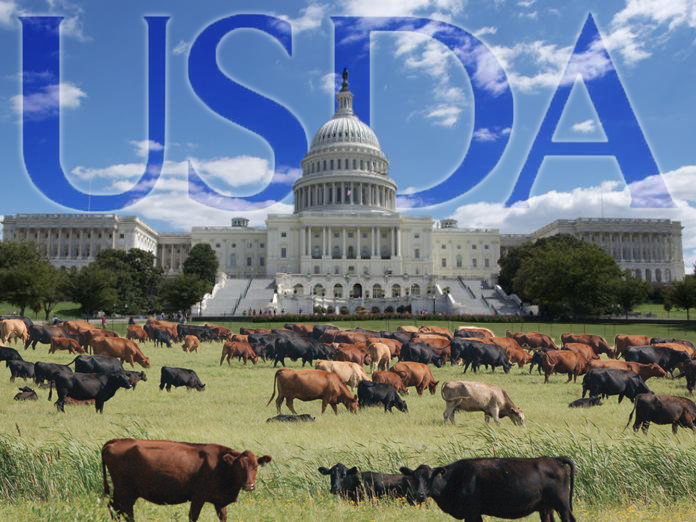“For too long, farmers and ranchers have seen the value and the opportunities they work so hard to create move away from the rural communities where they live and operate,” Vilsack said. “Under the leadership of President Biden and Vice President Harris, USDA is committed to making investments that promote competition—helping support economic systems where the wealth created in rural areas stays in rural areas—and strengthening rules and enforcement against anticompetitive practices. The funding and new rule we’re announcing today ultimately will help us give farmers and ranchers a fair shake, strengthen supply chains, and make food prices fairer.”
Fighting for fairness for poultry farmers
USDA announced a proposed rule under the Packers and Stockyards Act to protect poultry growers from abuse. The action is the first of three rulemakings that USDA will issue under the Packers and Stockyards Act under the President’s Executive Order on Promoting Competition in the American Economy in order to stop unfair, deceptive, discriminatory, and anticompetitive practices in the meat and poultry industry.
Currently, poultry processors exert control over much of the process of raising chickens through take-it-or-leave-it contracts with growers. Under these contracts, processors provide inputs like chickens and feed to poultry growers. Poultry growers, who often take on debt to build poultry growhouses, have limited visibility into the real range of outcomes and risks they face under these contracts. Moreover, once in the contracts, the processors then determine the payments that poultry growers receive for their services by weighing the chickens and ranking farmers based on how much the chickens grew. Pay is generally determined based on how a farmer compares to other farmers, but farmers currently have little insight into this comparison. For far too long, growers have complained that the “tournament” system is ripe for abuse.
The new rulemaking will require poultry processors to provide key information to poultry growers at several critical steps—increasing transparency and accountability in the poultry growing system. For example, processors would be required to disclose details of the inputs they provided to each farmer and information about the input differences among farmers being ranked. Furthermore, disclosures would cover the level of control and discretion exercised by the poultry processor and what financial returns the farmer can expect from the relationship based on the range of real experiences of other growers. Contracts would also be required to contain guaranteed annual flock placements and density. Poultry processor CEOs would be required to sign off on the compliance process for disclosure accuracy.
Simultaneously with issuing the proposed transparency rule, USDA is opening an inquiry into whether some practices of processors in the tournament system are so unfair that they should be banned or otherwise regulated. USDA seeks input from stakeholders to determine whether the current tournament-style system in poultry growing could be restricted or modernized to create a fairer, more inclusive marketplace.
Investing in expanded capacity
Vilsack also announced that USDA is making available $200 million under the new Meat and Poultry Intermediary Lending Program (MPILP) to strengthen the food supply chain and create opportunities for small businesses and entrepreneurs in rural communities. These funds will provide much-needed financing to independent meat and poultry processors to start up and expand operations. By introducing competition at this key bottleneck point in the supply chain, these investments will help raise earnings for farmers and lower prices for consumers.
The MPILP will provide grants of up to $15 million to nonprofit lenders, including private nonprofits, cooperatives, public agencies and tribal entities. These intermediaries will use this funding to establish a revolving loan fund to finance a variety of activities related to meat and poultry processing. For example, businesses may use the loans to acquire land, build or expand facilities and modernise equipment.
Building a well-paid, well-trained meat and poultry processing workforce
Vilsack also announced $25 million in investments for workforce training programs for meat and poultry processing workers with American Rescue Plan Act Section 1001 funding. The targeted funding through new and existing National Institute of Food and Agriculture (NIFA) programs is designed to create and expand upon good paying jobs that can strengthen the meatpacking industry by attracting and retaining employees.
USDA also released a new report on Promoting Competition in Agricultural Markets, as required by President Biden’s Executive Order on Promoting Competition in the American Economy. The report details USDA’s strategy for promoting competition in agricultural markets—including not only actions and initiatives to promote competition in meat and poultry markets, but also other key agricultural sectors like fertilizer and seeds. The report also discusses the negative impacts concentration in shipping has on our food supply chain and describes USDA’s efforts to work across the Administration to use all available tools to promote competition.
The report includes the announcement of two new pro-competition initiatives—initiatives that go above and beyond those required by the Executive Order. First, USDA is announcing plans to complete a top-to-bottom review of its programs to ensure they promote competition. Second, USDA announced it will update guidance to strengthen the verification requirements for the most widely used “animal-raising claims” to ensure consumers are getting what they are paying for.













